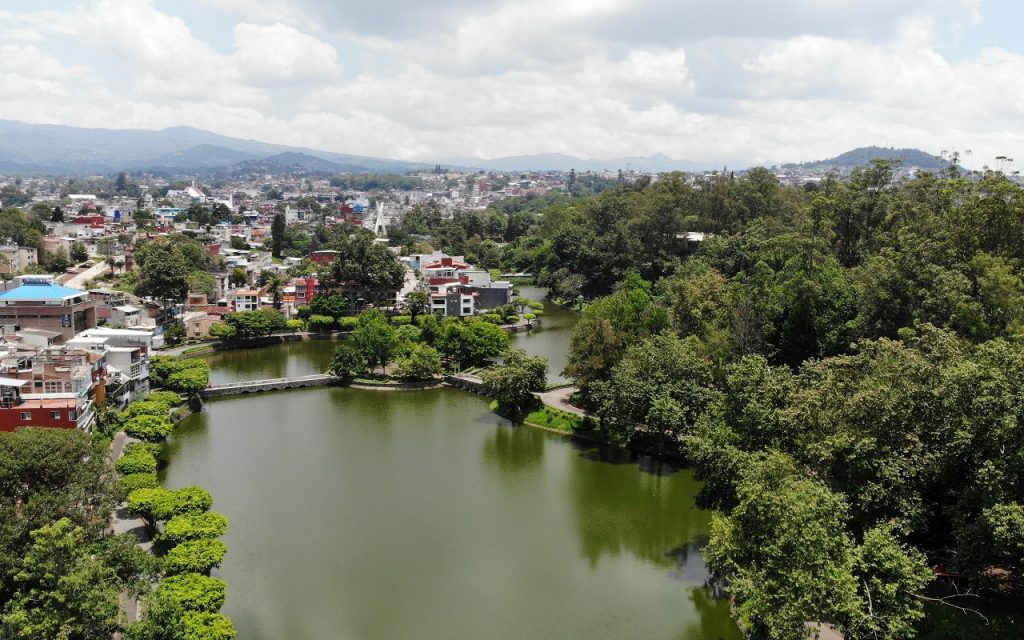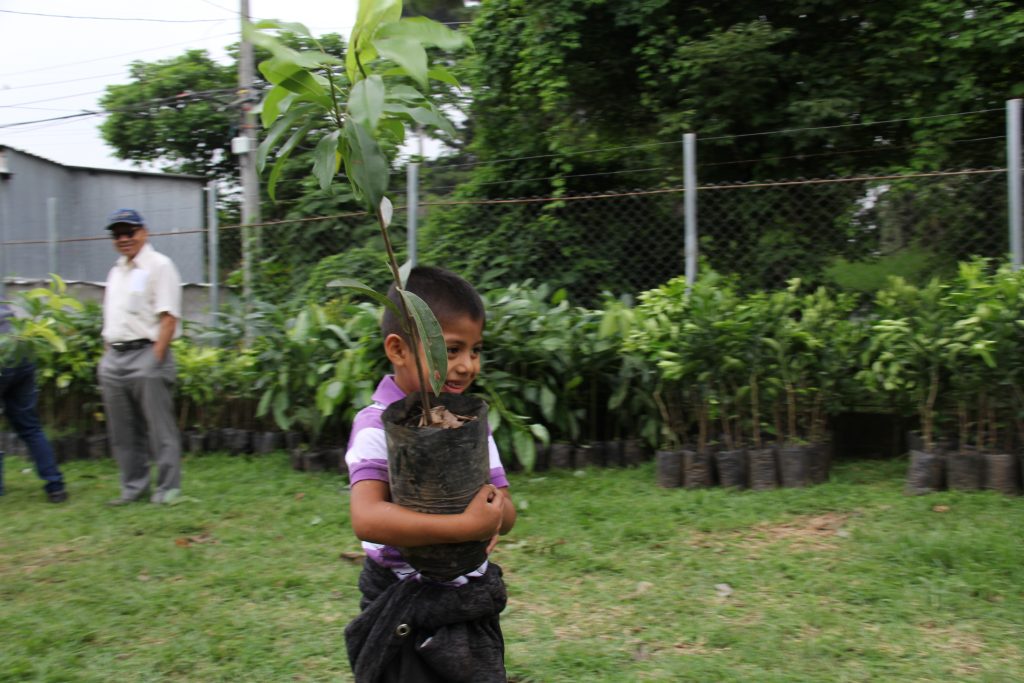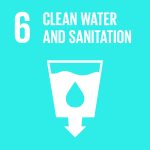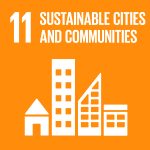Esta web utiliza cookies para que podamos ofrecerte la mejor experiencia de usuario posible. La información de las cookies se almacena en tu navegador y realiza funciones tales como reconocerte cuando vuelves a nuestra web o ayudar a nuestro equipo a comprender qué secciones de la web encuentras más interesantes y útiles.
CityAdapt: Partnerships with Universities for Long-term SDG Monitoring
Description
Institution
UNEP GAN

Organizations/areas of the university involved
These research institutions include the University of El Salvador (San Salvador), the University of the West Indies (Kingston) and the Institute of Ecology (Xalapa).
Country
Panama
A long-term research programme within university research institutions to monitor the benefits of the implemented urban Ecosystem-based Adaptation interventions in Mexico, El Salvador and Jamaica.
A long-term research programme has been established within university research institutions to monitor the benefits of the implemented urban EbA interventions. These research institutions include the University of El Salvador (San Salvador), the University of the West Indies (Kingston) and the Institute of Ecology (Xalapa). The results of this research will be shared with project stakeholders and the general public through peer-reviewed papers to improve the scientific and technical knowledge on urban Ecosystem-based Adaptation across the LAC region. In addition, educational toolkits will be developed for primary and secondary schools in San Salvador, Kingston and Xalapa to increase their awareness on the effects of climate change and EbA. To start the Long-term Research Programme, students from these universities have been selected – and funded – to undertake research on the SCCF interventions during the lifespan of the project.
Outputs:
- Design and institutionalise LTRPs with selected research institutions in El Salvador, Jamaica and Mexico to monitor the effects of urban EbA interventions in a scientifically rigorous manner.
- Develop MoUs between the executing agency of the SCCF-financed project and research institutions in each country to sustain the LTRP after project completion.
- Develop and implement research projects with MSc and PhD students from partner research institutions on the costs and benefits of urban EbA implemented under Output 2.4, and the benefits of these interventions for vulnerable communities.
- Disseminate the findings of the EbA research undertaken by the students through: presentations to government departments and institutions involved with urban development; and ii) publications in international and national journals. The availability of quantitative information on the benefits of urban EbA will promote evidencebased decision-making by the local authorities in the future, thereby promoting EbA investments beyond the project’s endpoint.
Results and impact measured or expected
- CityAdapt is generating scientific evidence on urban EbA strategies via research and monitoring partnerships with local universities and actors.
- In Xalapa, two MSc cost-benefit analyzes of the edible mushroom plots and a financial instrument for water provisioning as an ecosystem service are underway:
- Built capacity of over 190 decision-makers and planning officials
- Dozens of rainwater harvesting systems, urban gardens, and water retention structures built
- South-South Cooperation (SSC) is a key aspect of international cooperation on climate change. It involves exchange between countries in the Global South through technology transfer, capacity-building, knowledge-sharing, policy support and fundraising, and more.
- A web-based platform shares case studies, webinars, and tools such as a climate change vulnerability assessment methodology, vulnerability studies, and adaptation activity protocols.
- An urban EbA virtual course is bringing people from across the region together, including, recently, 45 students from across 14 countries (74% of all of countries in LAC) to learn about EbA strategies and identify climate risks in their regions. Class materials available online in Spanish.
- Workshops and trainings are building the capacity of hundreds of participants, including planning officials, decision-makers, and other government staff from at least 8 government agencies.
- A series of 13 videos for the general public are available to promote NbS for cities.

Tags
Connection with the SDG framework
CityAdapt and its university partnerships for research and monitoring have accelerated learning for the SDGs by helping local universities and students break out of their learning silos and gain hands-on experience in project activities that relate to SDGs on gender equality, life on land, climate action , sustainable communities, zero hunger, water security and others stemming from EbA work to restore and protect ecosystems and their services.
Barriers and follow up
There have been internal barriers with staff turnover and the Covid-19 pandemic. Externally, EbA knowledge and coordination barriers have been overcome via the use of workshops and inclusion of stakeholders ranging from local government officials to local women’s groups and children.
Transferability of the initiative
This initiative is already being replicated in other parts of San Salvador and in 10 more locations across Mexico.
Education 4 SDG funciona gracias a WordPress






